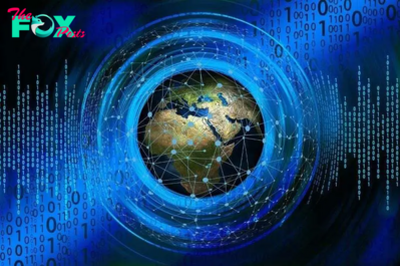Technology
What is artificial general intelligence (AGI)?
Artificial general intelligence (AGI) is an area of artificial intelligence (AI) research in which scientists are striving to create a computer system that is generally smarter than humans. These hypothetical systems may have a degree of self-understanding and self-control — including the ability to edit their own code — and be able to learn to solve problems like humans, without being trained to do so.
The term was first coined in "Artificial General Intelligence" (Springer, 2007), a collection of essays edited by computer scientist Ben Goertzel and AI researcher Cassio Pennachin. But the concept has existed for decades throughout the History of AI, and features in plenty of popular Science fiction books and movies.
AI services in use today — including basic machine learning algorithms used on Facebook and even large language models (LLMs) like ChatGPT — are considered "narrow." This means they can perform at least one task — such as image recognition — better than humans, but are limited to that specific type of task or set of actions based on the data they've been trained on. AGI, on the other hand, would transcend the confines of its training data and demonstrate human-level capabilities across various areas of life and knowledge, with the same level of reasoning and contextualization as a person.
But because AGI has never been built, there is no consensus among scientists about what it might mean for humanity, which risks are more likely than others or what the social implications might be. Some have speculated previously that it will never happen, but many scientists and technologists are converging around the idea of achieving AGI within the next few years — including the computer scientist Ray Kurzweil and Silicon Valley executives like Mark Zuckerberg, Sam Altman and Elon Musk.
What are the benefits and risks of AGI?
AI has already demonstrated a swath of benefits in various fields, from assisting in scientific research to saving people time. Newer systems like content generation tools generate artwork for marketing campaigns or draft emails based on a user's conversational patterns, for example. But these tools can only perform the specific tasks they were trained to do — based on the data developers fed into them. AGI, on the other hand, may unlock another tranche of benefits for humanity, particularly in areas where problem-solving is required.
Related: 22 jobs artificial general intelligence (AGI) may replace — and 10 jobs it could create
Hypothetically, AGI could help increase the abundance of resources, turbocharge the global economy and aid in the discovery of new scientific knowledge that changes the limits of what's possible, OpenAI's CEO Sam Altman wrote in a blog post published in February 2023 — three months after ChatGPT hit the internet. "AGI has the potential to give everyone incredible new capabilities; we can imagine a world where all of us have access to help with almost any cognitive task, providing a great force multiplier for human ingenuity and creativity," Altman added.
-

 Technology1h ago
Technology1h agoApple offers fix after iPhone users report missing iCloud notes | The Express Tribune
-

 Technology17h ago
Technology17h agoBluesky’s rise: why users are migrating from X? | The Express Tribune
-

 Technology1d ago
Technology1d agoNorth Pole shift towards Russia alarms scientists, potentially disrupting smartphone accuracy | The Express Tribune
-

 Technology1d ago
Technology1d agoMajor brands return to X after one-year gap | The Express Tribune
-

 Technology1d ago
Technology1d agoChina tests building Moon base with lunar soil bricks | The Express Tribune
-

 Technology2d ago
Technology2d agoGet chronic UTIs? Future treatments may add more bacteria to your bladder to beat back harmful microbes
-

 Technology2d ago
Technology2d ago2024’s final supermoon visible tonight in Pakistan | The Express Tribune
-

 Technology3d ago
Technology3d agoEU fines Meta €798 million for Facebook Marketplace's 'abusive practices' | The Express Tribune



























